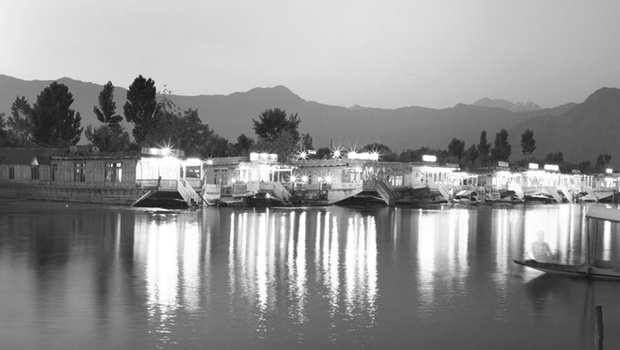 Chennai. For a long time now, it is a prevalent thought among foreigners that the Hindus in Bharat have little or no regard for clean living. Most people feel that Hindus take dirt and stench casually and almost seem to revel in the squalor around them. The sizable population of NRIs who visit Bharat is even more aggressive in voicing their revulsion for the Hindu way of ‘dirty living’, conveniently forgetting the fact that they contributed to this before they went over. To what extent is the accusation justified? Do Hindus really have no use for hygiene? Does the Hindu culture and tradition encourage unclean habits and customs? The answer is an emphatic no.
Chennai. For a long time now, it is a prevalent thought among foreigners that the Hindus in Bharat have little or no regard for clean living. Most people feel that Hindus take dirt and stench casually and almost seem to revel in the squalor around them. The sizable population of NRIs who visit Bharat is even more aggressive in voicing their revulsion for the Hindu way of ‘dirty living’, conveniently forgetting the fact that they contributed to this before they went over. To what extent is the accusation justified? Do Hindus really have no use for hygiene? Does the Hindu culture and tradition encourage unclean habits and customs? The answer is an emphatic no.
The Hindu way of living gives tremendous importance to hygiene and cleanliness. This is the incontrovertible truth that one can discern from the practices enjoined on us by our holy scripts and historically established systems. Let us look at the proofs: The daily bath is almost a ritual for the Hindu, and even a simple visit to the temple cannot be done if one has not bathed. He enters the puja room in his house only after a bath in clean clothes. Echchil is a concept exclusive to the Hindus. This concept calls for preserving the sanctity of prepared food. The plate used for eating shall not even touch the utensils with prepared food, and cleansing of the hand at least briefly is needed before one touches those utensils. Beginning with the vedas and puranas down to the literature of the Sangam era, tirukkural and later writings of our yogis and siddha purushas, we can see repeated exhortation of the need to be not just clean but pure – in thought, word and deed.
Here are some examples. Shaucham or cleanliness is an important dharma. Physical purity is looked upon as the first step towards both laukika saukhyam and paramaarthika saadhana. Sarve bhavantiniramayah – ‘may all be free of physical impurity’– is an important vedic prayer. The sastras prescribe five forms of purity: Purity of the physical body, action, character, speech and mind. Ramayana points out that all the residents of Ayodhya took cleanliness as a vow. Valmiki even records how bathrooms were with clean toothbrushes and spotless mirrors.
Bhagavan Krishna emphasis cleanliness in both body and environment as a great virtue. The quotes: Devadvijagurupraajnyapoojanamshauchamaarjavam | Brahmacharyamahimsaa cha shaareeram tapa uchyate || 14 || Worship of the deities, the twice born, teachers and the learned, purity, straightforwardness, chastity and non-violence — these are called penance of the body, Suchaudeshepratishtaapyesthiramaasanamaatmanaah | Naatyuchhritamnaatineechamchailaajinakushottaram || 6.11|| Having in a clean spot established, a firm seat of his own, neither too high nor too low, made of a cloth, a skin and kusha grass one over another.
Krishna goes on to equate lack of cleanliness to an asura and cleanliness as a divine attribute. The quote: Pravrittim cha nivrittim cha janaanaviduraasuraahaa | nashauchamnaapichaachaaronasatyamteshuvidyate || 7 || Whether to engage or to disengage from action, those people with devilish tendencies do not know. Neither purity nor proper conduct nor truth exists in them.
The vaidikakaryams (rituals) have specific sections of mantras and actions for suddhi or cleansing. Punnyahavachanam is done as a precursor to important religious rites. The words with which we do archana invariably include reference to purity and sanctity. So is there no grain of truth in the avalanche of diatribe against Hindus in India with regard to their scant respect of environmental cleanliness? Unfortunately the answer is ‘there is’. Over the last hundred years or so we have ceased to observe the great procedures and disciplines handed to us and have disregarded hygiene – especially environmental hygiene. We can give reasons – poverty, population, technological changes…, but these are mere excuses. Particularly the Brahmins should have led a crusade, corrected the trends and got all of us back to the golden path of good, clean living. They failed completely and followed the path of least resistance.
The purpose of my writing this piece would have become clear to you, dear reader. I am not getting into a denial mode when Hindus are accused of slovenly practices. I agree to the criticism with bowed head and would like to do my best to undo this bad reputation.


